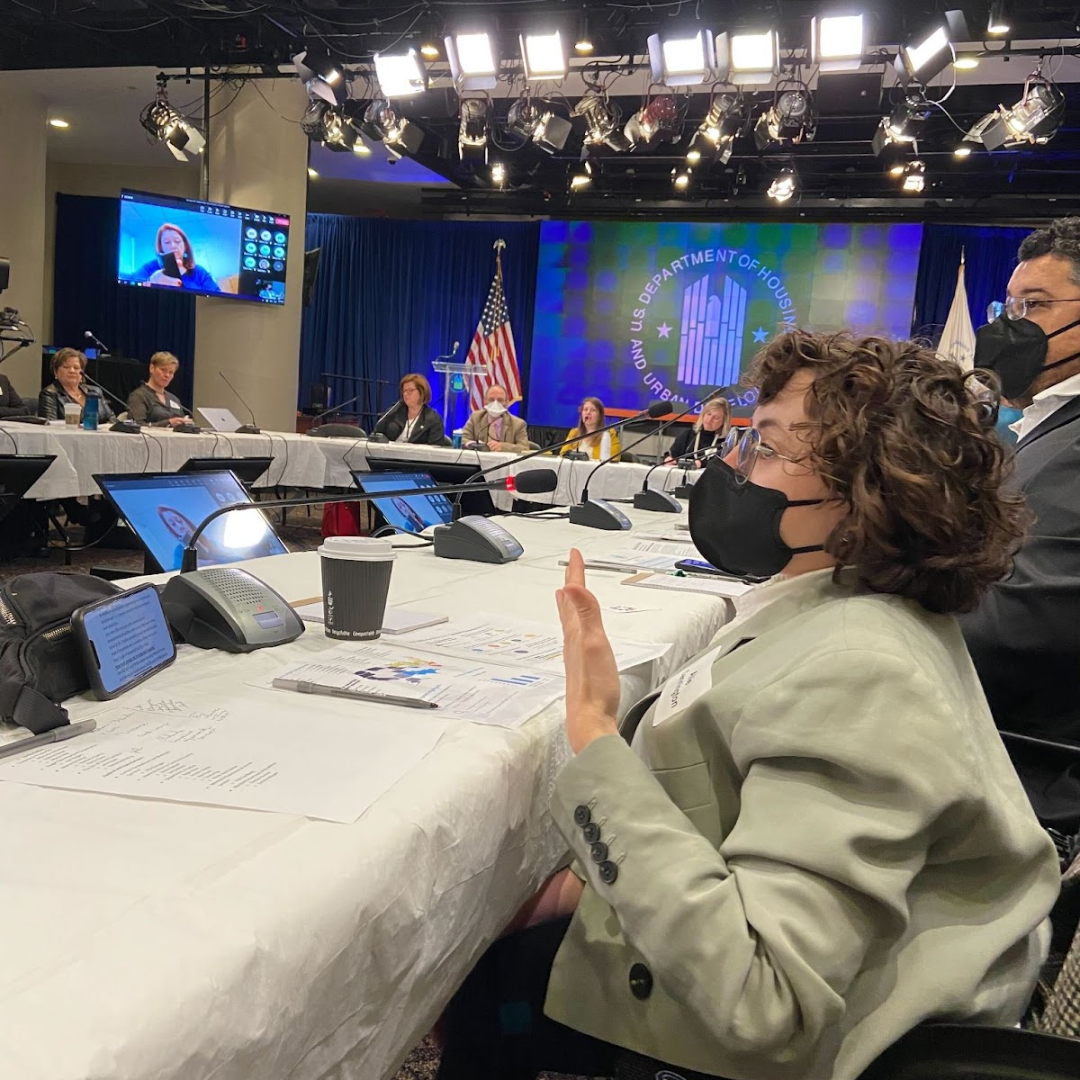Office of Multifamily Housing
U.S. Department of Housing and Urban Development
451 7th Street SW, Room 10276
Washington, D.C. 20410-0500
RE: Strengthen HUD’s 811 Capital Advance to Advance Integrated Housing
Dear Deputy Assistant Secretary Ethan D. Handelman,
Thank you for taking the time to read this letter from co-developers of inclusive housing and members of the Inclusive Houser Network, an industry group of organizations actively building or operating disability-forward inclusive housing. In this letter, we provide context for the need for disability-forward housing and share recommendations for how the HUD 811 Capital Advance program can be more affirmative toward integrated housing models. We urge HUD to incorporate these recommendations into the next HUD 811 Capital Advance NOFO.
The Problem
Driven by unreasonably high costs, the highest rates of housing discrimination, inaccessibility, and/or lack of housing that is ready to accommodate individualized support services, the nation’s state of housing for people with disabilities is grim. Therefore, it comes as no surprise that 18 million housed disabled people are eligible for federal housing assistance but are not receiving it. According to the 2023 HUD Worst Case Housing Neet Report, “about one in seven renter households with worst-case needs—14.7 percent or 1.26 million—included people younger than 62 who have disabilities”. This does not account for the 40% of unhoused people who are disabled and those who are still impacted by institutionalization: the roughly 1.2 million adults living in nursing homes, more than 360,000 people in psychiatric facilities, and the more than 268,980 people with I/DD who live in congregate, institutional settings or are on waitlists for services and residential programs.
HUD’s Role & Responsibilities
All entities covered by Section 504 and ADA must promote community integration for people with disabilities. This includes all HUD-administered programs. Therefore, HUD continues to play a key role in shaping how the nation meets the needs of people with disabilities, in particular, ensuring that more affordable, accessible, and integrated housing opportunities are made available. Although disabled people are served across HUD’s programs, it is paramount that HUD’s programs, including HUD Section 811 Capital Advance, which was created to address the lack of housing supply for extremely low and low-income adults with disabilities, effectively do so. Not just to ensure that the programs live up to their purpose but to serve as models for how disabled people can be included and served across other federal housing programs and within programs at the state and local levels. For example, we commend HUD’s Section 811 Capital Advance program criteria, which incentivizes the use of universal design, as it is essential that housing go beyond the minimum accessibility requirements and embeds design solutions that meet a broad array of access needs.
HUD 811 Capital Advance Barriers & Recommendations
There are elements of the HUD Section 811 Capital Advance program that do not uphold best practices in disability-forward and inclusive housing. The 2023 NOFO program criteria is structured to make less integrated housing, like group homes, more competitive for funding. This plays out in several ways, including that points are available if the applicant manages Section 811 PRAC or a capital advance project. Therefore, developers who have operated or currently operate 100% disability settings become more competitive. Group homes are entitled to by-right, but integrated multifamily is not. There are no additional points or incentives for integrated projects.
Therefore, we strongly recommend that HUD strengthen the program in the following ways:
- Incentivize integration, which can occur by adding additional points and other incentives for integrated projects.
- Entitle by-right to integrated projects
- Implement mechanisms for supporting and building up the capacity of newer developers and inclusive housers. This can include but is not limited to lowering the point threshold to create more opportunities for a diverse applicant pool, creating a separate pot of funds that could be the first capital funding for integrated projects, and allowing for longer service plans because editing the down the services plan to 5 pages both makes it less meaningful and adds significant time for the applicant.
Conclusion
Thank you again for considering our recommendations for improving HUD 811 Capital Advance’s ability to fund integrated housing. Not only is it HUD’s Section 504 obligation to do so, but HUD also has a responsibility to ensure that all of its programs, including Capital Advance, create housing opportunities that align with the community integration mandate. HUD can also consider ways to support the capacity building of newer developers who aim to increase the supply of such disability-forward, integrated housing. When the federal government leads on this, other entities will follow. We hope HUD will consider including these recommendations in the next 811 Capital Advance NOFO. For further discussion, please contact The Kelsey’s Allie Cannington at allie@thekelsey.org and/or 415.413.7059.
Sincerely,
Paul Linet | Founder & President, 3i Housing of Maine. Maine
Veronica McGee | Director, Accessible Alabama. Alabama
Allie Cannington | Director, Advocacy, The Kelsey. California, Alabama
Dena Bell | Executive Director, Home First. Illinois, Michigan
Mary Anne Oemichen | Executive Director, Home of Our Own, Inc. Wisconsin
Laura Wells | Executive Director, HOPE NC. North Carolina
Sharon Cichy | Chief Strategy Officer, Mainstreet Connect. Maryland
Larysa Kautz | President & CEO, Melwood. Maryland, Virginia, Washington, D.C.
Doug Shoemaker | President, Mercy Housing California, Mercy Housing Inc. California
Alicia DeLashmutt | President, Our Home, Inclusive Community Collaborative
OR
Paula Manion | Founder & Chair
Margot Greenlee | Executive Director
Our Stomping Ground, Virginia
Melissa Rosenberg | Representative, Patuxent Commons. Maryland
